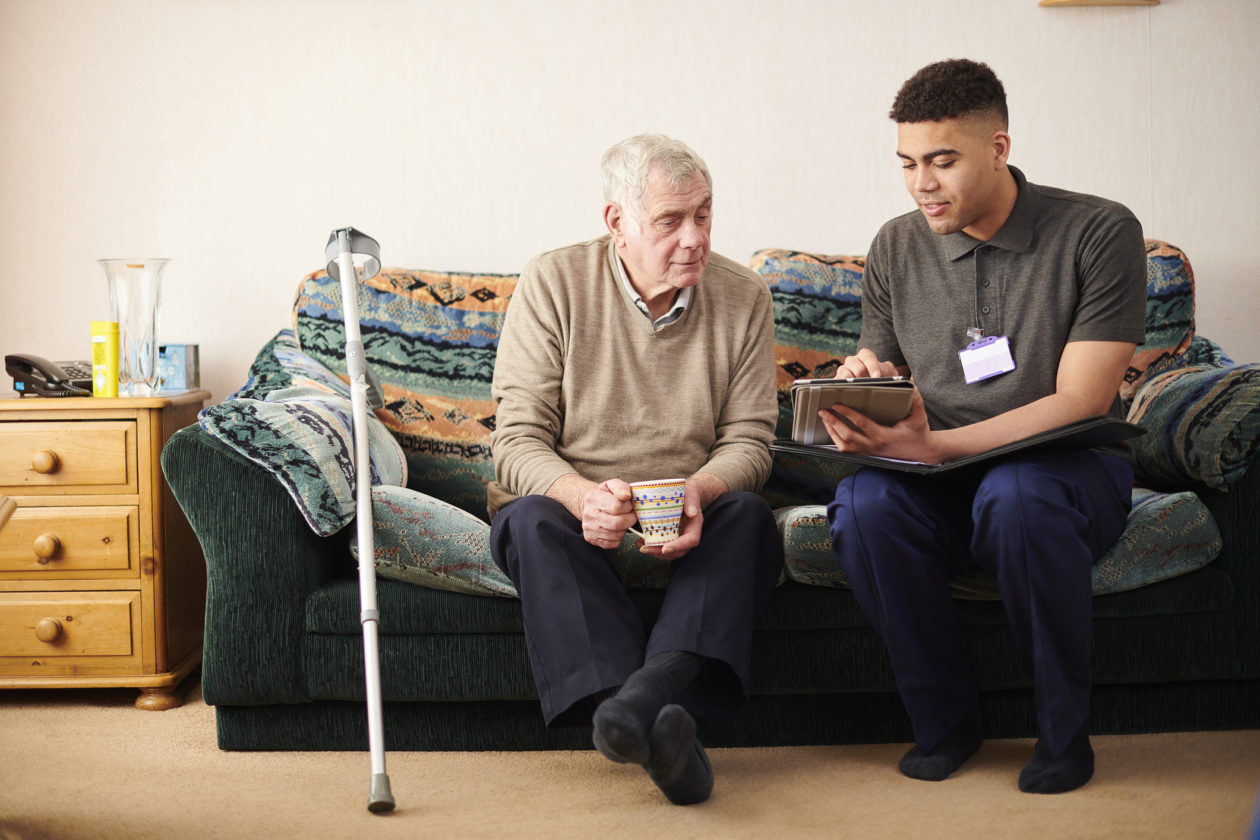Why reflective practice matters for the person living with dementia mate wareware
Dementia Learning Centre Director Caroline Bartle reflects on the importance of human connection

In the busyness of care, it’s easy to focus on what needs to be done. Supporting someone to get dressed, helping them use the toilet, preparing meals, giving medication… But dementia care is not just about tasks. It’s about how people feel while those tasks are happening. It’s about human connection, emotional safety and dignity.
That’s where reflective practice becomes so important.
Reflective practice helps us pause long enough to ask the deeper questions:
Did I make that person feel safe today? Did they feel heard? Did they feel like they mattered?
These are not soft questions. They are essential ones, especially for people living with dementia mate wareware. They’re often overlooked in busy services, but they hold the greatest weight in shaping how someone with dementia experiences their day.
People living with dementia mate wareware may not always be able to tell us in words how they’re feeling. But they show us. When we reflect, we become better at noticing these signals.
A UK study that invited paid home care workers to keep reflective diaries found that even brief written reflections helped staff better “hold on to the person,” especially during moments of distress or confusion. Reflection made space for empathy, curiosity and interpretation.
These small insights don’t always emerge during training. They emerge in practice. But only if we’re paying attention. And only if we take the time to think – not just about what happened, but why it happened, and how it made the person feel.
Reflective practice gives us the tools to do this. It turns everyday experience into learning – learning that improves the emotional safety and wellbeing of the person living with dementia mate wareware.
Not just for nurses – and not just once a year
Too often, reflection is seen as something only nurses do or something that only happens during an annual appraisal. But this way of thinking misses the point.
Everyone who supports a person with dementia mate wareware – care partners, hospitality teams, lifestyle coordinators, volunteers – benefits from reflecting on their actions and their impact. Because everyone influences the emotional world that person lives in.
One Australian study tailored Dementia Care Mapping with structured reflection for Assistants in Nursing. What happened? They felt more confident, better equipped, and noticed real improvements in their care. One key change was that they began seeing possibilities rather than problems.
That kind of learning doesn’t come from policy manuals. It comes from supported reflection, not once a year, but as a habit.
There is also a practical case to be made. Services that embed reflective practice report lower burnout, stronger teamwork, and more consistent care.
But even these benefits lead back to the person:
- When teams reflect, communication improves – and that leads to safer, more stable care.
- When staff feel supported to learn and grow, they bring more calm, confidence, and compassion to their work.
- When people are less stressed and more connected to their purpose, they bring warmth, not just technical skill.
And we’ve known this for decades. Donald Schön wrote in 1991 that reflective practitioners “allow themselves to experience puzzlement and uncertainty,” and that this is where growth begins. In dementia care, uncertainty is part of everyday life – reflection is how we meet it with curiosity instead of fear.
Let’s use the tools we have
There are many ways to make reflection part of everyday practice – and they don’t all have to be formal or structured.
- Get into the habit of asking each other, “What did you learn today from someone you supported?”
- Take a few minutes after a shift to jot down a moment that stood out – not because it was difficult, but because it was meaningful.
- Start a team meeting by inviting someone to share a time they felt they made a real connection.
Reflection doesn’t always have to be serious, it can also be creative and even fun.
In Bailey et al.’s 2016 study, care staff who took part in creative writing workshops, including poetry, found that the process helped them reconnect emotionally with the people they supported.
Poetry, short storytelling, or writing from the point of view of the person with dementia – these exercises made staff more aware of the little details that matter. They also found it uplifting. It reminded them why they do this work.
So whether it’s a journal, a team reflection board, or a creative writing session, what matters is this: you’re making space to notice, to learn, and to stay connected to the person
Reflective practice isn’t about getting it perfect. It’s about being present. It’s about noticing. It’s about learning.
Because when we reflect, we respond better. We recognise what someone is trying to tell us, even when they can’t say it. We understand what matters, and why.
It’s not an extra task. It’s how we deliver care that truly honours the person. And the people we support – they feel the difference.
Get in touch to learn how we can support your organisation’s journey toward excellence in dementia care.
Subscribe for more updates direct from the Dementia Learning Centre.

